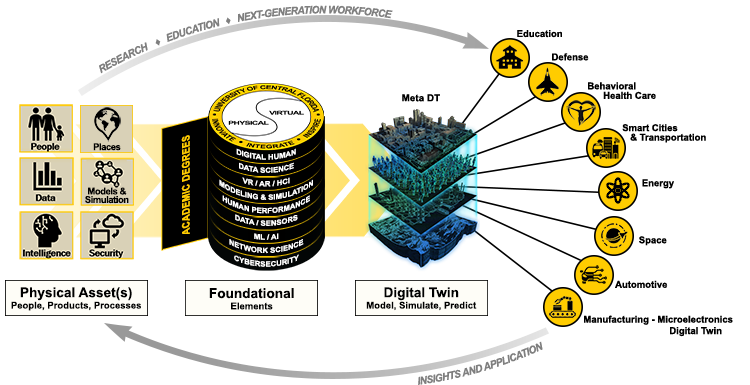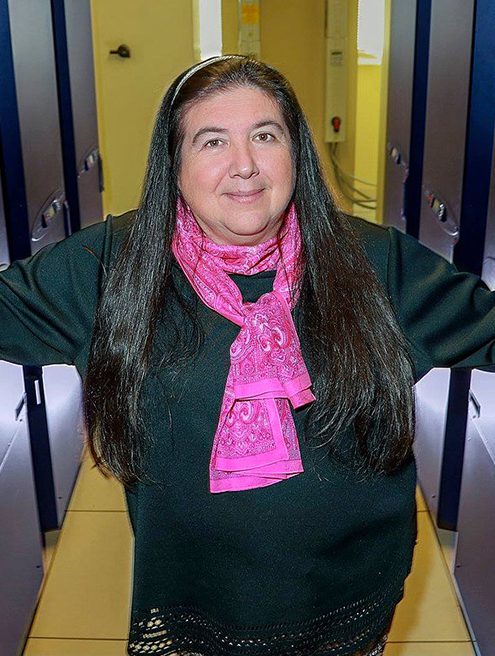Vision
The vision of the Knights Digital Twin Initiative is for UCF to lead the U.S.’ global competitive advantage of innovative digital transformation by fostering collaboration across academia, industry, military and government towards the development of an integrated ecosystem of digital/physical twins, data, models, simulation, and analysis of systems’ life cycle in a multi-domain environment.
UCF can be the academic leader for US’ digital transformation addressing the new challenges of rapid and disruptive innovation, capitalizing on UCF’s M&S foundations and strengths to develop new collaboration and partnership paradigms to launch and scale research and business ventures. This requires defining a new campus-wide framework for innovation centered around a strategic emerging technology, Digital Twin, little explored in academic settings. Our proposed campus-wide innovative, integrative, inclusive, and inspiring Digital Twin framework will enable us to intersect research and academics with industry and government partnerships to create transformative ventures with real-world impact.
Conceptual Digital Twin Framework

Research Strategy
- Applied Research Focus with supportive Foundational Research:
- Cycle of Design – Build – Deploy – Sustain
- Accelerated decision making
- Enhanced communications among teams
- Multi-disciplinary:
- Large-scale transformative ventures
- Cross business sectors/domains:
- Industry/government collaboration to drive standards, workflows and new technologies
- Optimize the role of higher education in the emerging innovation landscape, enabling the generation and adoption of new technology at a pace that will keep America competitive
- Research to Market approach:
- Research results driving product solutions and specialized workforce
- Innovative tech-transfer and commercialization pathways
On-Going Efforts
Research Areas:
Artificial Intelligence
Cybersecurity
Digital Twins
Human Digital Twins
Human Factors Design
Human-agent Teaming (HAT)
Human-computer Interaction (HCI)
Human-Machine AI Collaboration
Predictive Analytics
Capabilities & Advanced Technologies:
Data Mining
Digital Engineering
High-fidelity Models
High-performance Computing
Interoperability & Standards
Machine Learning
Multimodal Data
Rapid Prototyping
Simulations
Virtual Technologies
Application Areas:
Automotive
Behavioral Healthcare
Cybersecurity
Defense
Energy
First Response
Microelectronics and Semiconductor Fabrication
Smart Cities
Transportation





